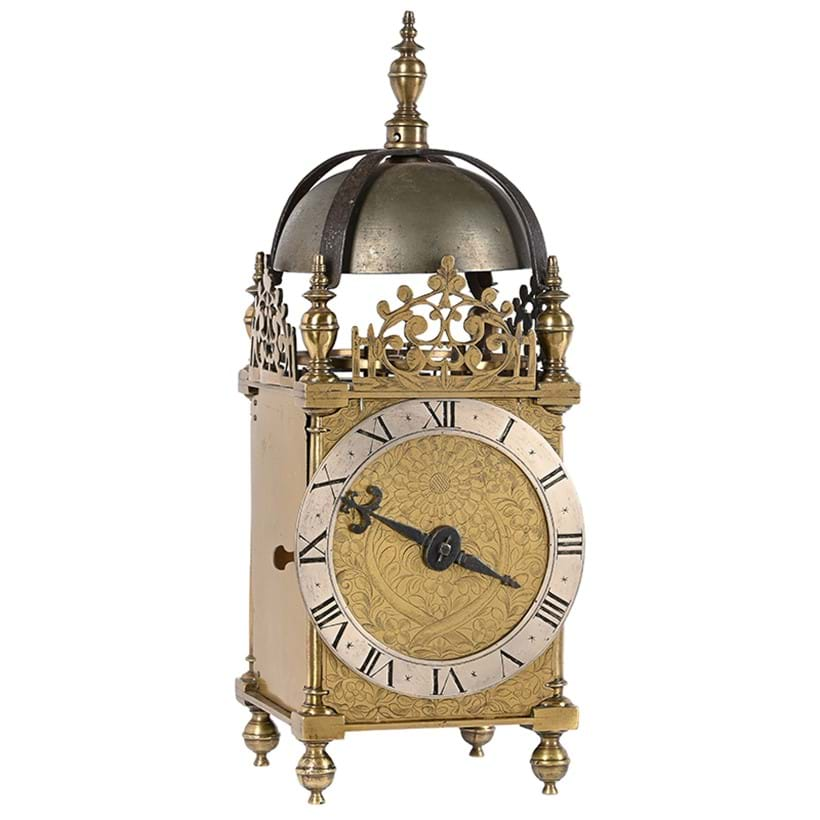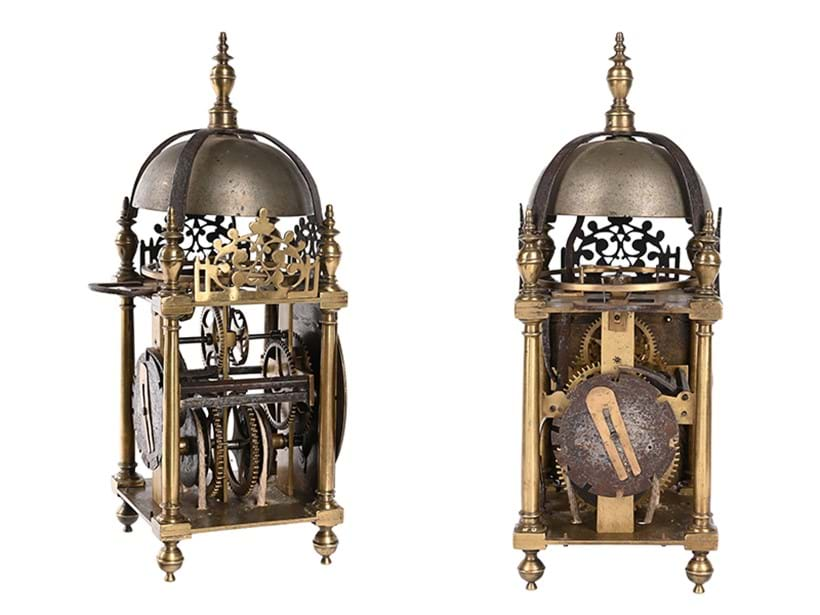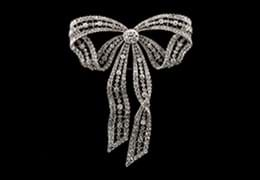'First period' English lantern clock | Fine Clocks, Barometers and Scientific Instruments | 7 March 2023
Coming up on 7 March, we have our auction of Fine Clocks, Barometers and Scientific Instruments, featuring a fascinating range of terrestrial and celestial globes, alongside a variety of longcase, carriage, table and mantel clocks, as well as other scientific instruments.
A particular highlight from the auction includes a fine lantern clock by the celebrated clockmaker William Bowyer (circa 1590-1653). Dating back to the 1600s, this piece is one of the earliest examples of an English domestic clock, made during King James I’s reign and during the time William Shakespeare was writing his first folio.

Leighton Gillibrand, Head of Dreweatts Clocks, Barometers and Scientific Instruments department, said:
“We are delighted to have the privilege of offering a clock dating back to the very genesis of English clockmaking. Early ‘first period’ lantern clocks are the earliest form of timepiece which can be described as being exclusively English and are truly perfect in the purity of their design and form.
The success of their design led to strong demand which was ultimately the catalyst for the establishment of the clockmaking trade in London, marked by the founding of the Worshipful Company of Clockmakers in 1631. To handle a clock from this time, especially one by a leading maker such as William Bowyer, really is a privilege. We anticipate strong interest from specialist collectors as no doubt this clock would be a rare and worthy addition to the finest of collections of English Horology.”

Made circa 1620, this is an early example of an English domestic clock, a lantern clock design, which was styled after a typical lantern shape of the period, which first grew in popularity in the early 1600s through to the late 18th century. This particular piece is one of a group of only six surviving examples of Bowyers earliest phase of clockmaking, making it extremely rare. The highly decorative piece showcases a finely engraved dial with a large chrysanthemum bloom design over twin entwines stalks, set with a flowering foliage to the centre.
It is signed by Bowyer and carries an estimate of £15,000-£20,000.
About William Bowyer
William Bowyer was born in circa 1590 and is recorded as being a member of the Pewterers' Company by 1616. Having established himself as a clockmaker he took in many apprentices prior to the formation of the Clockmakers' Company in 1631. Although he subscribed £5 towards its charter and was made free of the city in 1630, William Bowyer did not apparently join the Worshipful Company on its establishment the following year.
Bowyer is thought to have been first married to Margery Barlow of Litchfield, Staffordshire, however, by 1631 he was married to Prudence with whom he had five children (three of which sadly died in infancy). By 1638 Bowyer was living in the parish of St. Andrew Undershaft, he took-in Joseph Jackson as an apprentice and during the following decade took-on at least four more, through the Clockmakers' Company. One of these apprentices was Nathanial Allen (probably around 1641/2). Allen subsequently married a Phillipa Bowyer in 1646 hence became related to William through marriage.
In 1640 William Bowyer was invited to become an Assistant of the Clockmakers' Company, however it appears that he was reluctant to serve the Company, as in July 1642 he gave 'a great chamber clock' in return for excusal from any further duties. Nevertheless he became an Assistant in 1651 and a Warden in 1653 the year of his death. He is known to have traded from Leadenhall Street, London.
View Page Turning Catalogue
Auction Details
Tuesday 7 March | 10.30am GMT
Donnington Priory, Newbury, Berkshire, RG14 2JE
VIEWING:
Viewing in Newbury:
- Friday 3 March: 10am-4pm
- Sunday 5 March: 10am-3pm
- Monday 6 March: 10am-4pm
- Tuesday 7 March: from 8.30am















